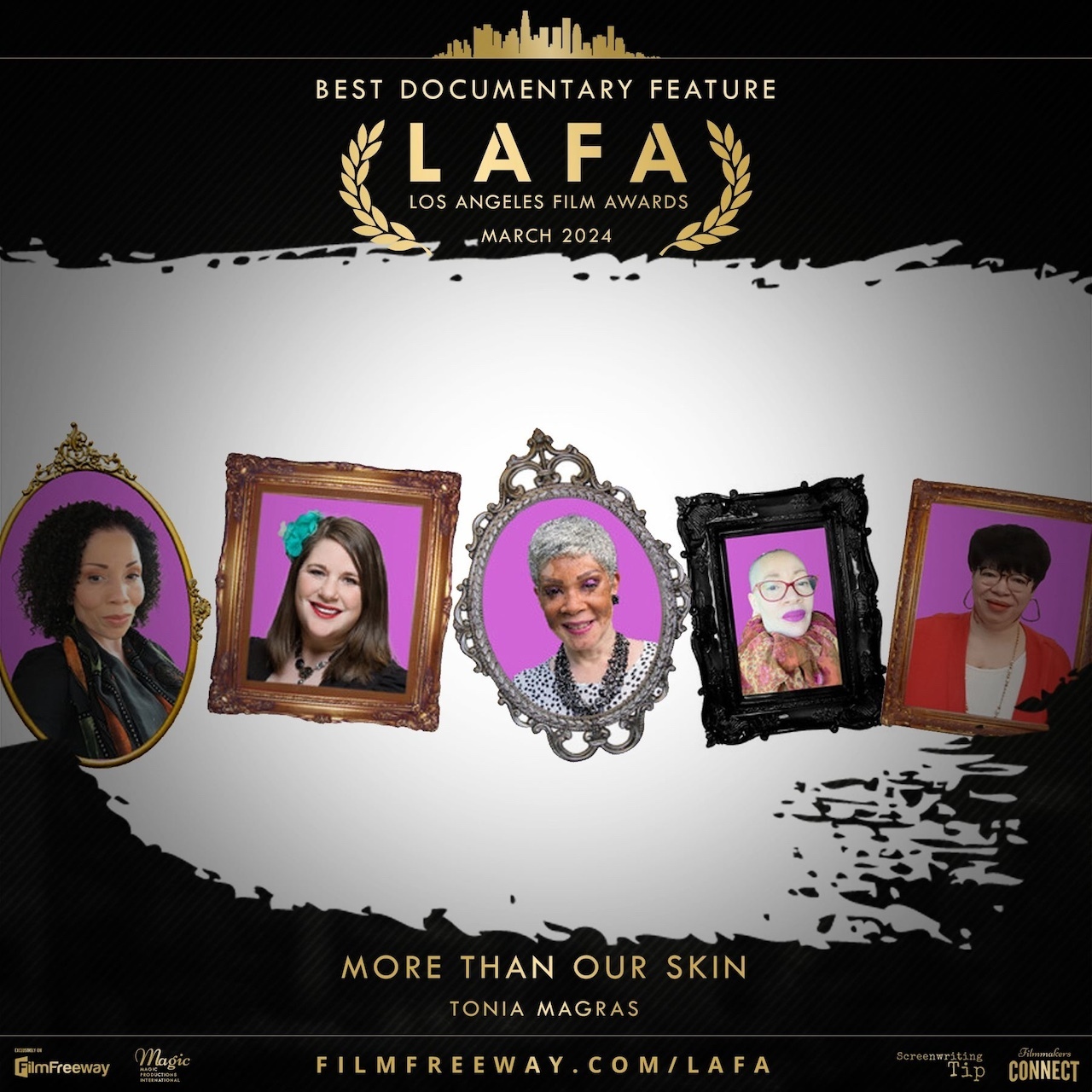New
Beneath the Spots: A Journey of Courage, Beauty, and Resilience
In the quiet of her car, parked at Jamaica Pond, Valarie Molyneaux faced a moment that would define her life. Diagnosed with vitiligo at 46, she contemplated ending it all. "I wanted to drive it in," she confesses, her voice a whisper of past pain. But in that darkness, a spark ignited. "I heard a voice that said, 'You can do something about this.'" And she did, founding VITFriends, a national organization that has become a lifeline for countless others.
Valarie's story is just one thread in the rich tapestry of "More Than Our Skin," a documentary that doesn't just tell stories – it invites us into lives transformed by vitiligo. Director Tonia Magras, with her three Emmy awards and decades of experience, spent three years crafting a narrative that resonates with raw authenticity.
We meet Millicent, who at 15 retreated from the world as her first spots appeared. "I felt like a monster," she shares, her eyes reflecting years of hidden pain. There's Alicia, diagnosed as an infant, who grew up as "the spotted one." "Every day was a battle to feel normal," she reveals. Katrina's journey echoes the frustration many feel: "I tried everything, until I couldn't try anymore." And Patricia, whose experiences remind us that every story of vitiligo is unique.
Dr. John Harris, a leading dermatologist featured in the film, provides crucial context. "Vitiligo has been misunderstood for thousands of years," he explains. "It's an autoimmune disease, real but not dangerous. Understanding is key." This understanding took a leap forward in 2022 when the FDA approved Opzelura, the first prescription treatment specifically for vitiligo, offering new hope to many.
But "More Than Our Skin" goes beyond medical facts. It captures the weight of strangers' stares, the sting of thoughtless comments. Patricia Rossy's words cut deep: "While they're staring at you, they're writing a book about you, and they don't even know you." It's in these moments of vulnerability that the true strength of these women shines through.
The film has sparked a movement, not with grand proclamations, but through small, powerful changes. Rep. Rob Consalvo, sponsoring bill H.976 in Massachusetts, puts it simply: "This is an issue of fairness." The bill aims to recognize vitiligo as an autoimmune disease, not just a skin condition, potentially opening doors for better treatment and support.
From winning gold at The Telly Awards to being recognized at film festivals worldwide, "More Than Our Skin" is changing perceptions one screening at a time. But its true impact lies in the lives it touches. A viewer in New York wrote, "For the first time, I felt seen. Not just my spots, but me."
As we step into 2025, this powerful documentary is ready to reach even more hearts. Starting January 1st, you can experience these journeys from the comfort of your home on Kinema for $7.50 – a small price for a perspective-altering experience.
In a world quick to judge based on appearances, "More Than Our Skin" reminds us of a fundamental truth: our beauty lies not in flawless skin, but in our capacity for resilience, growth, and love. It challenges us to look deeper, to see the person beneath the patterns.
This isn't just a documentary; it's a mirror reflecting our shared humanity. It's a call to action – to educate ourselves, to support those around us, to advocate for change. As Valarie Molyneaux says, "My spots don't define me, but they've shaped me into someone stronger than I ever imagined."
So, let's answer that call. Let's create a world where everyone, regardless of their skin's story, feels beautiful, valued, and understood. Because in the end, we're all so much more than our skin.
Announcement: MORE THAN OUR SKIN Wins LA Film Fest

FAQOther Questions
- Polypodium leucotomos as an adjunct treatment for vitiligo?
The tropical fern Polypodium leucotomos (also known as Polypodium aureum) and its relative Polypodium decumanumhave shown potential benefits for managing vitiligo and other auto...
- Shall I take vitamin D for my vitiligo?
Vitamin D plays a central role in the prevention of different inflammatory and chronic diseases. Consuming 1,000–4,000 IU (25–100 mcg) of vitamin D3 daily should be ideal for mo...
- Which is better for judging vitiligo — Wood’s lamp or dermoscopy?
A recent study out of India compared the two head-to-head. Both tools correlated fairly well with clinical criteria, but dermoscopy had a slight edge: Wood’s lamp: sensitivit...
Though it is not always easy to treat vitiligo, there is much to be gained by clearly understanding the diagnosis, the future implications, treatment options and their outcomes.
Many people deal with vitiligo while remaining in the public eye, maintaining a positive outlook, and having a successful career.
Copyright (C) Bodolóczki JúliaBy taking a little time to fill in the anonymous questionnaire, you can help researchers better understand and fight vitiligo.
